27 Research and Summer Programs in Texas For High School Students


The top research programs in Texas for high school students, selected based on prestige, location, and affordability. See research opportunities in other states here .
Hosting Institution
Online/In Person
Starting at $2695
Application Deadline
Sep 15, 2024
Neuroscience, Biology, Psychol...
Polygence is an online research program designed to offer high school students accessible research opportunities, making them more inclusive. The program was created by researchers from Harvard, MIT, and Stanford and provides tailored research projects, allowing students to explore their interests, acquire professional skills, and increase their competitiveness for college admissions.
ELITE Tech Camp
Rice University
Houston (TX)
Jun 15, 2024
Engineering, Comp Sci, Medicin...
This summer program is designed for high school students interested in engineering and college readiness. It offers a rigorous STEM curriculum that emphasizes hands-on learning, problem-solving, and the practical application of engineering principles. Through intensive coursework and support from experienced instructors, students will gain valuable technical skills and an understanding of how to apply engineering to real-world challenges.
Casper RET Program
Baylor University
Jun 21, 2023
Social Science
CASPER's Summer Research Experiences for Teachers Program offers elementary school, middle school and high school teachers the opportunity for active research participation with CASPER faculty. This summer program will begin around the first of June and end around the middle of August. (The starting and ending dates are flexible and may be adjusted to fit ISD schedules.)
Summer Research Internship in Infectious Diseases
University of Houston
No deadline
Medicine, Biology
This program spans over 8 years and offers students direct, hands-on experience in generating, analyzing, validating, and reproducing research data under the guidance of the program director. Students will receive practical research training that encompasses laboratory analysis skills, literature review, handling of biological samples, performing PCR tests, and plating bacteria through laboratory testing and basic microbiological techniques.
High School Research Academy (HSRA)
The University of Texas
Austin (TX)
Mar 24, 2024
Biology, Chemistry
The summer High School Research Academy (HSRA) provides high school students with an immersive and hands-on five-week interdisciplinary non-residential summer research experience at the University of Texas at Austin campus. Students participate in research projects in active College of Natural Sciences (CNS) laboratories related to the exciting fields of biochemistry, biology, environmental science, genetics, neuroscience, genome engineering, data analytics, ecology, and more. Participants will learn cutting edge research techniques while gaining valuable insights and experiences through interaction with UT students and faculty in CNS undergraduate research groups.
Regeneron ISEF
Society for Science
Dallas (TX)
The Regeneron ISEF isn't just your typical high school science fair. It's the most renowned science competition for high school students in the nation, attracting 1,800 finalists who compete for $8 million in awards and scholarships. Its reputation is highly respected by colleges and the scientific community. To participate in ISEF, 9th-12th grade students must first compete in a Society-affiliated fair and earn the opportunity to attend. Each fair has the opportunity to sponsor a certain number of projects, either team or individual, for the chance to compete at ISEF.
Conrad Challenge
This competition provides a platform for students aged 13-18 to address global issues by utilizing science, technology, and innovation, all while cultivating entrepreneurial skills and forming new connections. With guidance from industry professionals and a structured framework, participants can strengthen their collaboration, creativity, critical thinking, and communication abilities. One of the best aspects of this challenge is that students can choose to work with a small team of their choosing, allowing them to collaborate with friends and enjoy the project together.
Health Sciences Summer Camps
The University of Texas at Austin
Apr 20, 2024
Environmental Science
The Health Sciences Summer Camps at Dell Medical School offer high school students in Central Texas an immersive experience in the healthcare field. Through hands-on activities and interactions with professionals, participants gain exposure to various medical professions and learn clinical skills like administering IVs and CPR. The camps aim to inspire students to pursue careers in healthcare, especially those underrepresented in medicine. Two sessions are available in June, and students can apply through school nominations or open applications. Need-based scholarships available. Selected students can continue their engagement with Dell Med through the Health Sciences Yearlong Academy.
Tapia Camps
Houston, TX
May 1, 2024
The Tapia STEM Camps at Rice University offer award-winning residential programs for rising 8th-12th graders focusing on communication and equity in STEM. Campers engage in challenging STEM projects led by Rice University students, with a curriculum designed by Professor Paul Hand. They develop public speaking and teamwork skills, culminating in project presentations. Dr. Richard Tapia, a renowned mathematician, oversees the camps, aiming to inspire students towards STEM excellence. The program emphasizes societal equity within STEM and provides a unique opportunity for campers to interact with professionals in the field. Sessions run for 6 days and 5 nights during the summer, featuring field trips and dormitory accommodations. Limited scholarships are available, and discounts may be offered for large groups.
Closer Looks
Wonderworks
Jun 1, 2024
Architecture
Closer Looks, a program by Wonderworks and Rice University's Department of Art History, offers an immersive exploration of art and art history for high school students. Participants delve into various artistic works through lectures, discussions, readings, films, and field trips to esteemed art institutions. Led by experienced art historians and curators, students analyze artworks spanning civilizations, fostering a deep appreciation and understanding of art's significance. No prior art history knowledge is required, making it suitable for all levels. The program, held at Rice University, emphasizes both enjoyment and challenge, requiring focused commitment. Scholarships are available based on financial need.
Journalism Camp
TCU Schieffer
Fort Worth, TX
The Schieffer Summer Journalism Camp at Texas Christian University offers an intensive two-week residential program for high school students interested in journalism. Led by TCU faculty and industry professionals from Fort Worth and Dallas, participants delve into digital reporting, refining critical thinking and writing skills. Through discussions on media evolution and career pathways, students generate and develop news stories for both newscasts and online platforms. Registration is open for the upcoming session. For further details or to apply, contact the camp director via email or visit the camp's website.
Analytics Academy
Fort Worth, Tx
Apr 19, 2024
Data Science
The TCU Neeley Analytics Academy is a competitive, one-week summer program for high school juniors and seniors. Participants gain hands-on experience in data analytics and market research, exploring statistical programs, data visualization, and modeling techniques. Led by top-ranked professors, students learn to collect, analyze, and present data effectively, earning a Data Analytics Certificate upon completion. Strong math skills, scholastic achievement, leadership, and motivation in analytics are required for application. Need-based scholarships are available.
ELITE Tech camp
Houston, Tx
May 31, 2024
Residential students at the camp have the exciting opportunity to delve into cutting-edge technology courses during their week-long stay. With a wide array of tech offerings spanning fields like Python programming, robotics, deep learning, and self-driving technology, students can tailor their learning experience to suit their interests and career aspirations. Each week, students select two courses, one for the morning session and another for the afternoon session, allowing them to explore different aspects of technology and engineering. From mastering programming languages like Python and C++ to diving into advanced topics like deep learning and IoT, students gain practical skills and knowledge under the guidance of experienced instructors. Whether it's designing robots, exploring AI applications, or learning about spaceflight engineering, the camp provides a dynamic learning environment for aspiring tech enthusiasts. With tuition covering accommodation and instruction, it's a comprehensive opportunity for students to immerse themselves in the world of technology and innovation.
Artistic Exploration: Zip ST.ART Teen Program
ST.ART's Zip ST.ART program offers a one-week residential experience for high school freshmen, sophomores, and juniors. Participants choose two daily studio sessions from a variety of options including comics, printmaking, drawing, painting, photography, animation, and sculpture. The program includes over 30 hours of instruction, meals, housing, and activities. Financial aid and scholarships are available. The program aims to expand students' artistic skills, portfolio, and creativity in a supportive environment, providing opportunities for experimentation and learning from practicing artists and designers.
ST.ART Intensive: Igniting Creative Futures
ST.ART Intensive is a transformative four-week Art + Design program tailored for rising juniors and seniors. Participants delve into diverse concentrations like Digital Media & Sequential Art, Drawing & Painting, Printmaking & Design, and Ceramics & Sculpture. Through hands-on instruction from practicing artists, students expand their artistic horizons, develop portfolios, and prepare for college and beyond. The curriculum encompasses foundational classes, college prep discussions, and weekly critiques, fostering individual growth and creativity. Students engage in independent studio time and showcase their artwork in a final exhibition. Residential and commuting options are available, with payment plans and scholarships to ensure accessibility. With a rigorous yet rewarding schedule, ST.ART Intensive empowers students to embrace their artistic voice, nurture their talents, and embark on a path towards a vibrant creative future.
From the Ground Up: Summer Discovery Program in Architecture
Explore the world of architecture with Wonderworks and the University of Houston's Summer Discovery Program. Designed for high school students entering grades 10 to 12, or recent graduates, this immersive experience offers a hands-on introduction to architectural history, theory, and design. Through daily lectures, studio sessions, and field trips, participants develop a deeper understanding of the built environment and cultivate essential skills for portfolio building. No prior architectural knowledge is required. Applications open in January and close in June, with early submissions encouraged for timely decisions. Held at the University of Houston Central Campus, the program fosters both enjoyment and challenge, requiring focused effort and commitment from participants.
Story Lines: A Summer Dive into Fiction, Film, and Creative Writing
Literature and Languages
Wonderworks, in partnership with the University of Houston's Department of English and Creative Writing Program, presents Story Lines, an immersive summer program from June 17 to July 19, 2024. Aimed at high school students entering grades 10-12 or recent graduates, the program delves into fiction through readings, film screenings, and creative writing exercises. Participants analyze short stories or novel excerpts in the mornings and related films in the afternoons, exploring storytelling techniques and themes. Taught from a writer's perspective, Story Lines offers a glimpse into the mechanics of storytelling across different mediums. Admission is competitive, requiring a minimum 3.0 GPA and demonstrated proficiency in core subjects. Scholarships are available based on financial need.
Community of Scholars Summer Program at American University
American University
Washington, DC
Apr 30, 2024
The Community of Scholars pre-college summer program at American University's School of International Service offers high school juniors and seniors a three-week immersive experience in international affairs. Students take a three-credit class taught by AU faculty, complemented by visits to government agencies and organizations in Washington, D.C. The program combines on-campus learning with asynchronous study, allowing students to deepen their understanding of global issues. Upon completion, students receive an official transcript from American University. The program aims to enhance students' academic interests in international relations, provide exposure to international careers, and foster connections with like-minded peers. Additionally, students have access to AU facilities such as the fitness center and library.
Summer Intensive Training in Musical Theatre and Drama
The Catholic University of America
The High School Drama Institute at The Catholic University of America offers a three-week intensive summer training program in musical theatre or drama from July 8-26, 2024. Classes run weekdays from 8:45 am - 4:45 pm with evening activities. The program, held at the Hartke Theatre, includes lodging, meals, classes, workshops, and tickets. Participants study voice, movement, and acting with industry experts, and rising seniors can use the program as an audition substitute for the university's BFA in Acting for Theatre, Film, and Television or BM in Musical Theatre. Students experience campus life by attending classes, rehearsals, and engaging in the university meal plan. The program emphasizes audition monologue preparation, culminating in a showcase performance. Testimonials highlight the transformative experiences and positive learning environment. Contact the Department of Drama for more information.
Biosciences Institute: Intensive Coding for Biomedical Engineering
Jul 1, 2024
The Computational Biosciences Institute is a 10-day residential program designed for rising high school juniors and seniors interested in computer science and biomedical engineering. Participants will engage in intensive coding and programming sessions using Matlab software, focusing on real biomedical imaging and datasets. Led by faculty with expertise in biomedical imaging and computational biosciences, the program offers hands-on experience in scientific programming. Successful completion may earn transfer credit equivalent to a first-year, 3-credit computer science course required in accredited engineering undergraduate programs. This immersive experience provides a valuable introduction to the intersection of computer science and biomedical engineering, preparing students for further academic pursuits in these fields.
Engineering Pre-College Programs
Engineering
The Engineering New Frontiers Institute offers a weeklong residential academic summer course for high school students from July 22nd to July 26th. Aimed at students entering junior and senior years, the program covers various engineering disciplines including biomedical, mechanical, electrical, civil, and computer science. Participants engage in modern laboratory exercises, engineering design workshops, coding bootcamps, and prototyping work led by expert faculty. Additionally, students will have opportunities for entertainment, cultural experiences, and technical exploration in the DC area.
Nursing Summer Camp
May 15, 2024
The Conway School of Nursing Summer Camp offers a dynamic one-week experience for students interested in exploring nursing as a career. Led by experienced faculty and upper-class nursing students, participants engage in hands-on learning, simulation exercises, and lab practice. Emphasizing professional values and human dignity, the program integrates technical skills training with discussions on nursing's role in promoting human flourishing during illness. Strategies for academic success are also incorporated. Participants will earn CPR certification from the American Heart Association, enhancing their preparedness for future endeavors in healthcare.
Summer High School Program - Experiences in Architecture
$1,370-$2,570
Apr 15, 2024
The Experiences in Architecture (EiA) program at the Catholic University of America offers a pre-college workshop for students interested in architecture and design-related fields. Held in Washington, D.C., it provides exposure to both academic and professional aspects of architecture. Participants gain insights into campus life and receive preparation for success in university-level studies. The program runs from July 7 to July 20, 2024, and is open to rising 10th, 11th, 12th graders, and incoming freshmen. Students can choose between residential or commuting options. Upon acceptance, students are guided through the next steps. For more information, contact the program directors Tonya Ohnstad and Rebecca Ambouroue.
Service in the City - Day Camp
The "Service in the City" Day Camp, hosted by the National Catholic School of Social Service, offers high school students a unique immersion into social work principles in Washington, D.C. Over June 8-12, 2024, participants explore micro, mezzo, and macro levels of social work, engaging with individuals, communities, and policymakers. The program emphasizes strength-building, anti-oppressive practices, and empowerment, providing a deep understanding of societal challenges. It's not just a camp but a transformative experience, fostering a commitment to meaningful change.
Immerse into ASL
Gallaudet University
Washington, D.C.
Immerse Into ASL offers a transformative experience for new signers, providing a 24/7 immersion into American Sign Language (ASL) and deaf culture at Gallaudet University near Washington, D.C. With sessions catering to beginners and intermediates, campers engage in ASL learning, self-discovery activities, and outdoor adventures. Led by qualified Deaf instructors, participants gain independence in ASL communication while enjoying field trips to D.C. landmarks and Six Flags. The program accepts deaf, hard of hearing, and hearing students entering 10th–12th grade, with hearing applicants required to submit an ASL video application. Two sessions are offered: an overnight camp and a day camp, with campers allowed to attend for up to two summers. Vocational Rehabilitation counselors receive a student summary report post-program.
Summer Immersion
The George Washington University
$4,600-$5,100
The George Washington University Pre-College Program offers high school students an immersive summer experience in Washington, D.C., focusing on global development, international relations, public policy, and more. Participants engage in intensive, academically challenging courses taught by top-tier faculty and practitioners, integrating lectures, seminars, and hands-on experiences. The program also provides insight into college life, fostering confidence and social connections among peers from diverse backgrounds. With sessions covering diverse topics such as international law, entrepreneurship, medicine, and cybersecurity, students gain valuable knowledge and skills while exploring the nation's capital. Additionally, opportunities for recreational activities and exploration of D.C. complement the academic curriculum. Various application deadlines are available for different sessions, ensuring flexibility for interested students.
Global Scholar Training
Georgetown University
Join the Global Scholar Training at Georgetown University, a one-week immersive program designed for rising 9th-12th graders. Dive into workshops and discussions led by experts and youth leaders, focusing on key skills for social change, such as empathy, problem-solving, and team-building. Explore urgent global challenges like climate change and gender justice while connecting with peers from around the world. With a "pay what you can" model and need-based scholarships available, the program aims to make this transformative experience accessible. Gain valuable skills, expand your network, and become a bold and visionary global leader ready to tackle the world's pressing issues. Apply now and be part of the change!
Are there many Research Opportunities for High School Students in Texas?
Texas features a variety of academic opportunities for students, including several large public university systems (the University of Texas, Texas A&M University, Texas State), prestigious private schools (Rice University), and HBCUs (Prairie View A&M University). Need more reasons? Texas' natural beauty offers students throughout the state the opportunity to pursue various outdoor recreational activities. Texas is home to beaches, mountains, lakes, and state and national parks, all of which are conducive to spending time outside. Students in Texas can hike through mountains and parks, climb natural rock faces, wake surf along the coast, or raft down rivers. These areas also offer numerous opportunities for camping and backpacking.
What other research opportunities are available?
For a full set of research opportunity listings, see our guide to research opportunities for high school students .
Want to start a project of your own?
Click below to get matched with one of our expert mentors who can help take your project off the ground!
- Skip to Menu.
- Skip to Main Content.
CS K-12 Outreach
Research program for hs students – summer 2025.
Summer 2024: Papers & Presentations
Summer 2023: Papers & Presentations
Program dates: June 9 – August 1, 2025 (8 weeks) Application site: TBD
Summer 2025 program will be updated by January 1, 2025. Please check back here at that time. Following details are for Summer 2024:
All Summer Research offerings @ Google sheet utd.link/csr24
We believe that learning coding skills and understanding new technologies is the most productive way to spend summer months for the most high school students. Main challenge with research for HS students is that the advanced level of knowledge is required to understand the research that goes on in our labs & to make any meaningful contribution in short 2 months of Summer.
Scholarship for low income families is made possible by financial support from

Learning to code is like learning to play a musical instrument! It takes a lot of time, patience and practice. Please, please, please do NOT skip the introductory material covered in our summer camps and sign up directly for the research workshops – it will have the opposite effect – your child will lose the self-confidence and decide that Computer Science is not for him/her.
We have decided to offer 2 types of research opportunities this Summer:
- Intensive Research Internship in CS labs – typically meet in-person for multiple days per week – capacity in each lab is very limited – so we will be extremely selective! Selection process & goals are managed by individual labs. We expect each intern to work 20-40 hours per week – it will vary greatly depending on the project or lab. Actual work can vary a lot too: reading research papers, conducting simulations, develop app for specific functionality, etc.
There will be $500 fee to cover the logistics and compensation for the instructors (we will accommodate the low income families with discounted fees). Once you are selected for Internship, you are expected to register within a week to keep your spot. There will be $50 cancellation fee. Warning: We expect the lab intern selection to be highly selective. Do not be disappointed if you don’t get selected. We don’t mean to discourage you, rather we want you to be realistic about the chances. Best wishes!
- Summer Research Workshops – Each workshop is run like informal college courses that meets at least twice per week – students can attend IN-PERSON or ONLINE (all sessions will be recorded to help the attendees to catch up if any sessions are missed due to other summer commitments) – typical goal of each workshop is to end with a final project or paper related to the research area. However, we will NOT push the students to do them – we will enable them by providing the necessary support & guide them towards their goals. There will be $500 fee to attend these Summer Research workshops. Once you are selected for this Summer Research program, you are expected to register within a week to keep your spot. There will be $50 cancellation fee. However, if you are admitted to a lab later, we will be happy to transfer you to the lab. We also have 8-week Deep-dive AI workshop which runs for the whole day for 8 weeks! Registration fee is $1200. See the details below.
Who can apply?
These research opportunities are ONLY for passionate & highly motivated advanced level high school students (ideally students finishing 10th and 11th grade) who are thrilled to dig deep and gain more knowledge with minimal guidance. If you are hoping for a lot of hand-holding along the way, these opportunities are not for you! 🙁 Especially for lab internships, we expect you to have good background knowledge in the research areas you are interested in.
Google sheet utd.link/csr24 contains the listing of current Summer Research offerings. You can also visit UTDCS department research page to understand research that goes on in our research labs/institutes/centers. BTW, professors’ schedules are extremely busy – please do NOT email them directly – reach out to Dr. Jey at [email protected] if there are any questions.
8 week Deep-dive AI Workshop – June 3 to August 2, 2024 (with July 1-5 break)
Application process through https://k12.utdallas.edu/research
UTD CS is thrilled to offer Artificial Intelligence Workshop for 8 weeks for College Students & Advanced Level High School Students. This camp actually runs Monday to Friday for all 8 weeks (9:30am-4pm) with lunch break for an hour. In-person attendance is strongly recommended. Supervision will be provided from 8:30am to 5pm. We will send a camp completion certificate to each camper. We will also send a write-up/recommendation letter based on the student’s performance.
Pre-requisites: Familiarity with Python programming, and high school level math. Willing to invest time & energy to learn advanced level coding, data analysis skills and apply them to a real life project.
Instructors
UTD CS graduate students, with Dr. Anurag Nagar & Dr. Anjum Chida as the faculty leads.
Registration fee is $1200, very reasonable for 8 week intense program like this one, we understand that the low income families may find it hard to pay it – as a public state institution, our goal is never to turn away any interested Texas students due to money. We offer 50% discount for low-income families. Send any meaningful documentation to [email protected] to apply. See the bottom of utdallas.edu/k12 for more details.
In case you change your mind later & decide not to attend this program, there is just $50 cancellation fee – remaining amount will be refunded back to you. Also, pro-rated amount will be refunded if you decide to quit in the middle of the program.
List of Topics
- Introduction to Python programming, tools for data analysis such as NumPy, pandas, graphics.
- Getting started with data processing – various file formats, loading into data frames and performing basic statistical operations.
- Introduction to machine learning, with examples and real life scenarios.
- AI/ML model building – decision trees, neural networks, etc.
- Deep Neural Nets using TensorFlow
- Convolutional Neural Nets (CNN) and Recurrent Neural Nets (RNN)
- Model Evaluation – accuracy, error, ROC curve
- Project Activities
The University of Texas at Dallas is committed to providing an educational, living and working environment that is welcoming, respectful and inclusive of all members of the university community. The University prohibits unlawful discrimination against a person because of their race, color, religion, sex (including pregnancy), sexual orientation, gender identity, gender expression, national origin, age, disability, genetic information, or veteran status. Participation in our Coding Camps/Workshops/Webinars is open to all interested parties.
HSRA Research Experiences
HSRA participants work closely with undergraduate students and faculty in a research laboratory at the UT campus.
The HSRA application will open again in early 2025!
HSRA IS AN IN-PERSON PROGRAM. WE DO NOT PROVIDE HOUSING OR TRANSPORTATION.
The summer High School Research Academy (HSRA) offers a range of research opportunities spanning many different branches of science, including biochemistry, biology, chemistry, computational chemistry or biology, environmental science, genomics, materials science, molecular biology, and physics.
HSRA participants will:
be matched to a research group based on their interests, availability, and space.
work closely with undergraduate students and faculty in a research laboratory at the UT campus.
attend weekly seminars presented by UT faculty and researchers.
present their summer research in a printed poster at our closing HSRA Research Symposium.
All HSRA lab experiences offer exposure to both general & advanced lab techniques and research practices that may be transferable to future academic and professional activities.
Research Experiences by Discipline**
Biochemistry.
Researchers isolate an RNA molecule, called an aptamer, through the in vitro aptamer selection process. In essence, students will sieve a haystack for the few pieces of hay, aka aptamers, that bind a specific protein target. Through this sieving or selection process, researchers will learn technical skills like: micropipetting, amplification of DNA through the PCR reaction, generation of RNA through a transcription reaction, purification of DNA/RNA using a variety of techniques, visualization of DNA/RNA using gel electrophoresis, and more! Participants can expect to collaborate with a small team, receive mentorship from undergraduates and faculty, analyze real data, develop strategies for overcoming obstacles found when conducting real research, and communicate the results of their research findings.
Build with biological LEGOs of genetic information.
Participants will be introduced to laboratory skills including PCR, DNA mini prep, transformation, recombinant protein expression, recombinant protein purification, and western blot analysis, and how these techniques are applied to molecular and biochemical research. Students will have the opportunity to participate in a current research project with undergraduates, learn scientific communication and how to prepare a research poster.
Identify mutations found in tumors.
Participants will investigate the relationship between alterations in gene expression and the development of cancer, specifically looking at genes with suspected but unconfirmed roles in carcinogenesis. Projects involve using a variety of molecular biology techniques to construct DNA molecules to facilitate the study of specific mutations found in tumors. Expressing mutated proteins can allow for detection of changes in gene expression and cell growth and behavior.
Create DNA circuits to genetically engineer bacteria.
Students will work on one of our various projects, which include working with Cyanobacteria, bacteria found in bees, or E. coli. We will design DNA sequences in silico and then conduct benchwork, including molecular biology techniques (such as PCR and genetically modifying bacteria) and microbiology techniques (such as culturing bacteria). Students will also read scientific literature with guidance and present their work to undergraduate researchers and faculty.
Discover new chemical compounds involved in infectious diseases.
Participants will be involved with computational and wet-laboratory infectious disease drug discovery projects, such as tuberculosis, malaria, and SARS-CoV-2. First, a molecular docking program is used to sift through libraries of chemical structures and predict which ones may bind to a protein that is a potential drug target. Results are visually analyzed with a molecular graphics program and ranked according to predicted binding affinity scores. Then, DNA cloning and protein expression protocols are implemented in the lab to test the top potential drugs in enzyme assays. HSRA students will primarily focus on developing wet lab skills to produce the target proteins in a lab strain of E. coli bacteria. We will also focus on obtaining skills in molecular visualization software.
Probe the neurogenetic basis of alcohol addiction.
Participants will be introduced to the Drosophila melanogaster system and research in fly behavior. They will be trained in various behaviors (e.g: courtship behavior, male aggression, learning and memory, alcohol sensitivity) as well as experimental procedures, data collection, analysis and interpretation, with the purpose of exploring gene function in behavior. Students will learn to read and interpret the literature connected to the behaviors and gene they are investigating in the laboratory, collaborate with undergraduates, and get exposure to data analysis using R statistical analysis software.
Explore how cells communicate with each other in plants.
The central question to our research will focus on is how extracellular ATP functions like a hormone-like signal in animal and plant cells. The experimental system used in their research is the model plant Arabidopsis. Specifically, students will learn the techniques needed to work independently in the lab and will then perform their own novel experiments aimed at discovering early signaling steps by which extracellular ATP regulates the opening and closing of stomatal pores in Arabidopsis leaves. In the process of doing research, students will practice methods of experimental design, data gathering, statistical analysis, data interpretation, and data presentation.
Genetic engineering of plants as biosensors and reporters of environmental toxins.
Our lab works on a mix of basic and applied research projects in plant biology. One example of an applied project students can work on we call the “diagnostic plants” project. This project seeks to couple a plant’s natural ability to produce colorful pigments with the plant’s ability to detect heavy metal toxins in the soil or water. Students will learn about and apply a variety of molecular cloning and plant genetic techniques towards the engineering of a plant that can “report” the presence of environmental toxins via the expression of pigments in the plant body. Besides molecular biology lab skills, students will also learn to document and analyze data, read scientific literature and communicate their work.
BIOTECHNOLOGY
Discover biotherapeutics.
Participants will move cutting-edge, synthetic biology research into commercially viable biomaterials and biotherapeutics. Our research focuses on optimizing a novel E. coli secretion system for small protein with the goal of developing a continuous production model for biotherapeutics. Specifically, we focus on optimizing a new secretion system for production of commercially important small peptides including those used in diagnostic imaging and type 2 diabetes treatments. By inserting the genes for these proteins into a novel E. coli genetic construct, we can turn the bacteria into continuously producing mini-factories that will reduce manufacturing costs and make these life-saving proteins more accessible.
Use light to create the next generation soft materials.
Soft materials, such as plastics and other polymers, are ubiquitous in our everyday lives, however their production requires large amounts of energy, often in the form of heat. Light represents an abundant and renewable alternative energy source for soft materials fabrication, yet contemporary light-driven industrial chemistry relies on the use of high energy, intense ultraviolet (UV) rays. To overcome these hurdles, our research explores the use of organic dyes as efficient visible light-activated catalysts to generate next generation soft materials. As part of this research group, participants will learn how to characterize the optical properties and reactivity profiles of colorful molecules (dyes) to determine governing principles that improve the efficiency of soft material production using visible light.
Explore a new approach to selective molecular recognition.
Our lab seeks ways to implement existing organic chemistry techniques in the creation of novel sensing protocols using modern analytical devices. These protocols are designed to be effective, rapid, and readily usable in any academic lab or industrial setting. HSRA participants will learn the basics of organic synthesis and modern analytical chemistry techniques to help develop fast and cheap sensors that are easy to implement can provide very helpful solutions to real everyday problems!
COMPUTER SCIENCE
Develop better materials for fuel cells and batteries.
Participants will be introduced to computational material science, one of the most interdisciplinary fields! Research is specifically focused on developing better materials for fuel cells and batteries, and more importantly methodologies for material analysis and discovery, ideally automagically. Students will be exposed to all the required knowledge in physics, mathematics, chemistry, and computer science from a community of undergraduates and faculty. Specifically, students will learn how to: write python scripts for simple task automation, write python optimizers that produce relaxed molecular structures with Lennard-Jones potentials or perform non-linear fitting, use Density Functional Theory software (VASP) to simulate simple chemical reactions and surface catalytic reactions that take place in fuel-cells and model ion diffusions in Li-ion battery cathode materials, and much more.
RobIn Lab is directed by Roberto Martín-Martín, and is part of the University of Texas at Austin, Department of Computer Science, UTAI Lab and Texas Robotics. The research in RobIn explores at the intersection of robotics, computer vision and machine learning, with an emphasis on creating robotic solutions that accomplish interaction-rich tasks in the real world. Our research revolves around the question: what are the mechanisms that enable physically intelligent behavior in embodied agents? Our hypothesis is that intelligence is not a purely computational process, but an interplay between perceiving, reasoning, learning and interacting physically with the world.
INTERDISCIPLINARY
Investigate the structure and motion of star clusters, galaxies, and clusters of galaxies.
Students will learn to use powerful Data Science tools in Python like Jupyter Notebooks, NumPy, SciPy, MatPlotLib, and Pandas, and will apply these tools to datasets that professional astronomers use like SDSS (Sloan Digital Sky Survey), NED (NASA Extragalactic Database), and GAIA. The concepts in astronomy that students will be dealing with are simple and deep - and students will spend time developing the necessary programming and data analysis skills in order to deepen our understanding of the universe and our place in it.
Develop the latest at-home diagnostics.
Researchers will be working on developing and applying state-of-the-art diagnostic technologies to water sources around Austin. Specifically, we will be attempting to perform "creek-side" diagnostic tests. These tests are well established but are normally performed in a full laboratory setting. By attempting them out of the lab, we will better understand the limitations/strengths of diagnostics in both environmental and low resource healthcare settings.
Participate in innovation that crosses STEM disciplines!
Participants will learn to apply a variety of technical skills to design and create their own individual projects. The Makerspace is home to a variety of 3D printers, laser cutters, and electronic components, all of which students will learn how to operate with the help of experienced undergraduates. The focus of the lab is to encourage ingenuity and innovation across multiple disciplines. Previous projects have included robotics, an environmentally friendly wind-powered boat, prosthetic arms, water quality sensors, and much more. Students will develop valuable STEM skills such as problem-solving and creative thinking that will be represented in their individual projects.
Investigate human impact on the quality of Austin watersheds.
Participants will focus on research related to understanding urban nature. We study the microbiology, macrobiology, molecular biology, chemistry, and ecology of urban ecosystems. The Water Quality project collects samples along Austin's creeks to understand how human activity impacts the organisms that we share our city with. We focus on general measures of water quality and habitat quality as well as looking for contaminants. Experiments include measuring tree canopy; identifying aquatic insects; quantifying aquatic microbes; measuring basic water chemistry such as pH, conductivity, nitrates, and phosphates; and assessing riparian habitats. Students will be embedded with ongoing research projects working in both the field and the lab and will perform experiments alongside experienced undergraduate researchers and faculty.
Environmental Chemistry
Participants will focus on research related to understanding urban nature. The Environmental Chemistry project collects samples along Austin's creeks to understand how human activity impacts the organisms that we share our city with. We use analytical chemistry to detect and quantify the amounts of various pollutants in various environmental samples, including creek water, sediment, and biofilms. Students will be embedded with ongoing research projects and will perform experiments alongside experienced undergraduate researchers and faculty collecting samples from Waller Creek, which runs through the UT campus.
Exploratory Data Analysis
Our Exploratory Data Analysis project will introduce you to the field of data mining. Our collaboration with the US Geological Survey studies the enormous RSQA database of measurements of environmental chemical and biological metrics, using samples collected from almost 500 streams across the country over a five-year period. We will teach you to program in R, a statistics and visualization language, to create visualizations, and perform statistical and multivariable analysis to answer an environmental research question of your own. No experience in statistics required, though we recommend that you have either had some computer programming experience or have the interest to work hard on learning the basics quickly.
**Availability of Research Experiences is subject to change.
Honors College
- Academics & Enrichment
- Affiliated & High School
- Clark Scholars Program
Main Page Program History Application Details Research Areas Previous Scholars Contact Us Related Sites FAQ
Welcome to the anson l. clark scholars program.
The Anson L. Clark Scholar Program is an intensive seven-week summer research program for twelve highly qualified high school juniors and seniors.
Program Benefits
The Program at Texas Tech University helps the Scholars to have a hands-on practical research experience with outstanding and experienced faculty. The list of research disciplines available for Summer 2024 will be posted in the next few weeks.
There are no program/registration fees and the following is covered by the program:
- On-campus meals
- On-campus room and board
- Weekend activities/programming
Expenses not covered by the program:
- Travel to and from the program location
- Personal expenses
- Medical expenses
The Program includes social activities and weekly seminars.
Upon completion of a successful research project report, the Scholar will receive a $750 stipend.
Eligibility
Applicants must be at least 17 years of age by the program start date, and should graduate in 2024 or 2025. (This means they will participate the summer before senior year or the summer after senior graduation of high school.) NO EXCEPTIONS - Emails requesting exceptions will not be answered.
Must be a U.S. Citizen or Permanent Resident.
2024 Summer Program Dates
June 16, 2024 to august 1, 2024.
Clark Scholar News
Contact TTU
UT High School Research Academy (HSRA)
Main Campus
Registration Deadline: 03/26/2023
The UT High School Research Academy (HSRA) is an immersive experiential-learning program designed to teach high school students hands-on “real” science. Students work directly in faculty labs at UT and participate in faculty-led research projects.
- Programs for 12th Grade, 11th Grade, 10th Grade
- STEM Focus Science Keywords: Computer Science, Research, Biology, Chemistry, Astronomy, Medical
- Audience Reach Texas
- Scholarships Available Yes
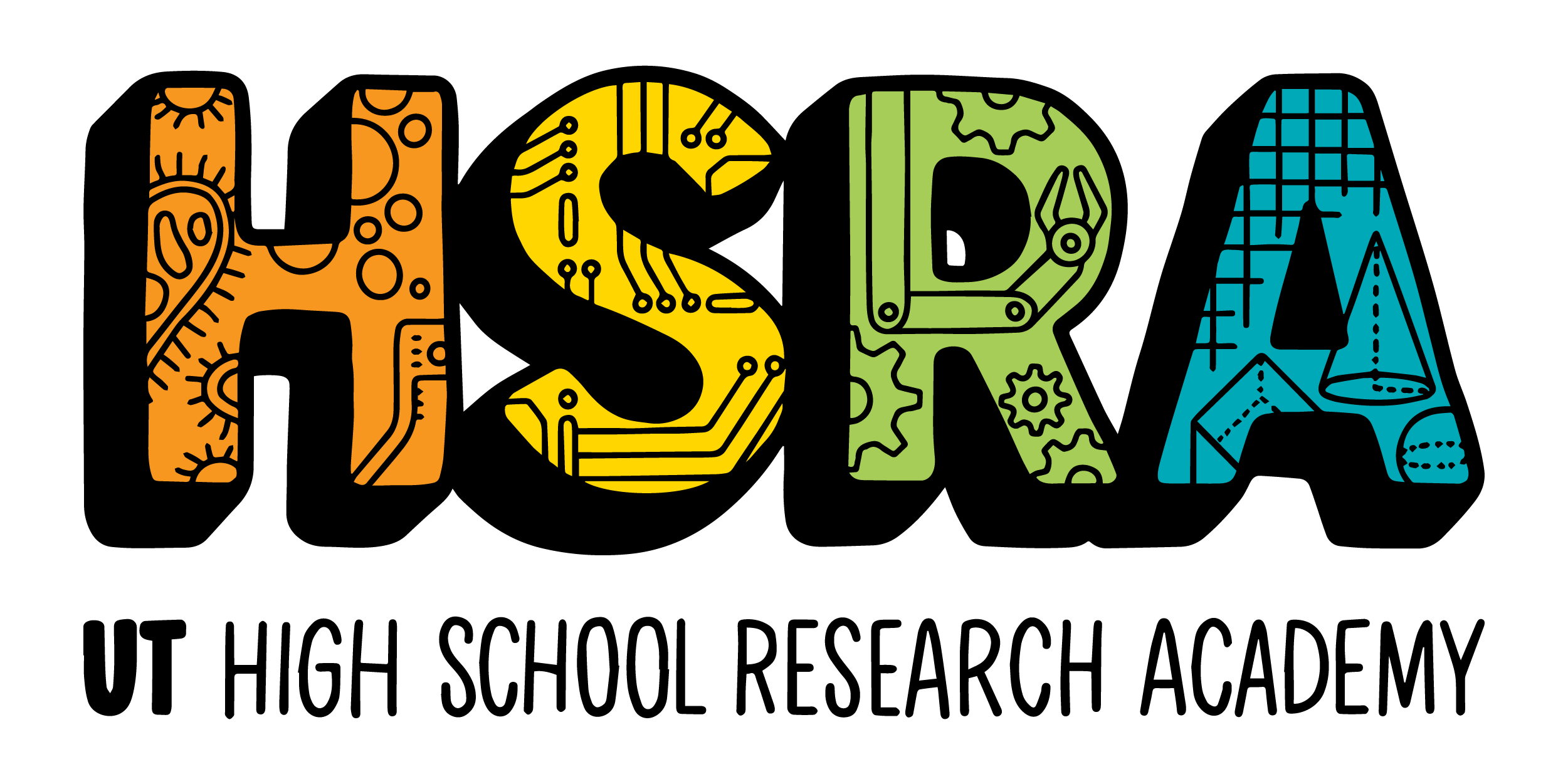
- Visit Website
- [email protected]
Other Programs By This Organization
No additional programs were found.
- Houston Methodist Main Site
- International Patients

- Find a Doctor
- Get Care Now
- MyChart Login
- Pricing Transparency
- Call Houston Methodist
- Health Professionals Education
- Research Education
- Summer Internship Programs
- Summer High School Research Internship
- Summer Internship Programs Home
- Summer Undergraduate Research Internship
- Fields Rosenberg Surgical Fellowship
- Kadoorie Cardiovascular Internship
(fAQs) FREQUENTLY ASKED QUESTIONS
Click Here to View

Internship Guidelines & Requirements
Houston Methodist will begin accepting applications for the 2025 Summer Internship Programs starting on December 2, 2024 , and ending on January 31 , 2025 . The programs will begin on May 27, 2025 , and end on August 1, 2025 . The internship is held at the main Houston Methodist Hospital campus in the Texas Medical Center. All programs require a full-time commitment for the 10-week duration (May 27 – August 1, 2025). Daily attendance is required of each student for a full 8-hr workday, approximately 8:30 a.m.–5:00 p.m., except for the July 4th holiday. Please review our comprehensive FAQ for more information.
Eligibility:
- High school students who are currently in their junior or senior year and will be at least 16 years old by the start of the program (May 27, 2025) are eligible to apply.
Application Requirements:
- Completed MERLIN application
- Two required essay questions, and one optional
- Two letters of recommendation
- Transcript (Official or Unofficial)
- Minimum 3.5 GPA
Additional Information:
- High school students are NOT eligible to receive a stipend for participation in the Summer Research Internship Program.
Additional Help:
- For questions regarding the internship programs or the application process, please email [email protected]
- All other general questions may be directed to Corina Rosales, PhD , Faculty Program Director
Thank you for your interest in the Houston Methodist Summer Research Internship Program! We look forward to receiving your application.
Below is a testimonial from one of our 2024 high school interns:

“My experience with the Houston Methodist High School Summer Research Internship was unparalleled. Immersed in authentic research, I had access to resources and mentors who provided invaluable guidance tailored to a diverse group of interns. Over the course of ten weeks, I gained profound insights into both myself and the impactful nature of research in the medical field. This internship made for an unforgettable summer.”
Deeya Joglekar (2024 High School Intern)
Clements High School
What are your chances of acceptance?
Calculate for all schools, your chance of acceptance.
Your chancing factors
Extracurriculars.
20 Summer Programs in Texas for High Schoolers in 2024
What’s covered:, 20 summer programs in texas for high schoolers, how do summer programs impact your college chances.
You don’t mess with Texas is a popular saying in the Lone Star state, and certainly holds a kernel of truth when talking about its summer programs for high schoolers. Offerings include everything from STEM-focused courses at some of the largest universities in the U.S. to hands-on, high-tech-focused courses at colleges that are among the most prestigious in the nation.
Keep reading to learn about some great high school summer programs in Texas.
1. McCombs Six-Day Experiences
Dates: June 2 – 7; June 9 – 13; or June 23 – 28 (different focuses for each session)
Location: University of Texas at Austin
Application Deadline: February 14 or March 1 (depends on session)
This excellent six-day residential summer program gives current high school sophomores and juniors a glimpse at college life—what it’s like living on campus, interacting with faculty, and meeting like-minded peers. There are three versions of the program: one focused on business, one on leadership, and one on accounting.
First-generation students and students who have overcome social or economic hardships are strongly encouraged to apply.
2. High School Research Academy (HSRA)
Dates: June 10 – July 17
Application Deadline: March 24
Cost: $3,500
Participants in this science-based summer program will gain first-hand research experience by working in the University of Texas at Austin’s College of Natural Sciences laboratories alongside faculty and current undergraduate students.
Research projects cover topics in a range of fields, including biochemistry, biology, environmental science, genetics, neuroscience, genome engineering, data analytics, and ecology. Participants are awarded course credit at the end of this five-week immersive non-residential experience.
3. Academy for Women
Dates: June 2 – 8
Location: University of Texas at Austin
Application Deadline: January 7
This week-long program aimed at female students in grades 10 through 12 focuses on the contributions women make to the field of computer science. Participants will explore C++, learn about project management, work in teams, and develop a better understanding of the career paths available in tech. Participants will also experience a slice of college life, by living and learning on the University of Texas Austin campus.
4. Academy for All
- Session 1: June 9 – 15
- Session 2 (Machine Learning): July 7 – 13
Application Deadline: N/A
Participants in this week-long computer science program immerse themselves in the field through hands-on activities involving coding, project management, and teamwork, as well as the exploration of potential career paths. Students in the standard program will learn about C++ and those in the Machine Learning Edition will work in Python.
Both sessions provide students with a sneak peek of the college experience, as they tackle college-level coursework, live with students from across the globe, and gain invaluable insight into what life as an undergraduate looks like overall.
5. Health Sciences Summer Camps
- Session 1: June 10 – 14
- Session 2: June 24 – 28
Application Deadline: Open application is available April 1
This week-long camp is open to Central Texas high schoolers in grades 9 through 11. Participants engage in hands-on experiments, interact with health professionals, and learn about professions in the healthcare field. Students will participate in simulations and learn about skills like administering IVs, drawing blood, and taking vital signs.
Note that, while there is also an open application, 75% of participants in this program are nominated by their school district. If you’re interested, you should speak to your school counselor or science teacher about how to secure a nomination, as the process varies from district to district and from school to school.
6. Camp SOAR (Summer Opportunities in Aerospace Research)
Dates: June 2 – 6
Location: Texas A&M
Application Deadline: N/A
Rising high school juniors and seniors with an interest in aerospace engineering and research should look into this program. Over five days, students tackle hands-on projects and tour research facilities, all while building valuable skills like critical thinking and teamwork. Students work under the supervision of faculty and current aerospace engineering students while following one of three tracks—airplanes, helicopters, or space.
There are need-based scholarships available to cover the cost of this program.
7. Camp ARCH
Dates: July 8 – 13
Location: Texas A&M
Application Deadline: April 1
Cost: $1,500
This one-week residential program introduces potential students to life as an undergraduate at Texas A&M’s School of Architecture. Participants choose from three tracks—architecture, construction science, or landscape architecture and urban planning—so that they can focus on an area of particular interest while also sampling what college life is like.
8. Aerospace & Aviation Academy
Dates: July 25 – August 5
Location: Rice University
Cost: $6,745
This summer program is aimed at students with their heads in the clouds. More concretely, those with an interest in aviation and aerospace. Over the program’s 12 days, participants stay on Rice University’s campus and experience college life while hearing from the school’s renowned faculty, government space scientists, representatives from NASA, and a former NASA astronaut. Another highlight of the program is the chance to design, prototype, revise, and launch a satellite that will collect information that participants will analyze.
9. Rice ELITE Tech Camp
- Session 1: June 30 – July 5
- Session 2: July 7 – 12
- Session 3: July 14 – 19
- Session 4: July 21 – 26
Cost: $1,695 for commuters; $3,795 for residents
These week-long summer camps are tailored to teach college-level engineering curriculum to high school students, while also improving their college readiness and building leadership skills. Participants engage in a variety of STEM-based activities and learn to solve real-world problems using the engineering design process. Topics covered include machine learning, artificial intelligence, the internet of things, data science, 3D printing, deep learning, and data analytics. ELITE Tech Camps are offered in residential and commuter formats.
10. Tapia STEM Camps
- Session 2: July 7 – 12
- Session 4: July 21 – 26
Location: Rice University
Application Deadline: Application opens March 1
Cost: $2,500
Students interested in STEM and social equity will want to check out this six-day, five-night summer program, which uniquely blends concepts from both areas of study. Students live and learn at Rice University while interacting with Rice students, researchers, STEM professionals, and professors, including Richard Tapia, a recipient of the National Medal of Science. Participants build valuable skills like communication, public speaking, and teamwork while learning about subjects ranging from carbon storage to college admissions.
Limited scholarships are available for these camps.
11. Closer Looks
Dates: June 17 – July 19
Location: University of Houston
Application Deadline: June 1
Cost: $1,000
This summer program is ideal for all art lovers, whether you have no prior experience in the field or have already taken AP Art History. Participants will explore all types of artworks, from the dawn of civilization to today. Don’t expect to just stare at slides in this course, though! Rather, participants visit numerous local galleries and museums, including:
- The Menil Collection
- The Museum of Fine Arts, Houston
- The Kimbell Art Museum
- The Amon Carter Museum of American Art
- The Modern Art Museum of Fort Worth
- The Blanton Museum of Art
- The Harry Ransom Center of the University of Texas
Art historians and curators will guide students during their visits, share their knowledge and enthusiasm, and ultimately help cultivate the next generation of art lovers.
12. Schieffer Summer Journalism Camp
Dates: July 2 – 14
Location: Texas Christian University (TCU)
Cost: $2,000
This two-week residential program is designed to teach participants the fundamentals of digital reporting—including how to generate story ideas, develop them, and turn them into content for newscasts and websites. Over the course of the program, students will build their critical thinking and writing skills and meet professionals working in the Dallas/Fort Worth media to learn about careers in the field.
13. TCU Neeley Analytics Academy
Dates: July 7 – 12
Application Deadline: April 19
This program helps participants understand how companies like Amazon know what they want to buy and why their social media features products they’re genuinely interested in purchasing. During this one-week residential experience, students will hone their data analytics and market research skills, and discover how businesses use these tools to improve profitability. Students will live on TCU’s campus while learning from its esteemed business school faculty, to gain valuable insight into what college life is like academically and socially.
14. TCU Band Camp
Dates: June 9 – 13
Location: Texas Christian University (TCU)
Cost: $375 (for commuters or All State residents); $650 (regular residential rate); free for All State commuters
TCU Band Camp offers a few tracks for high school musicians, including:
- Music and leadership: combines playing in large ensembles and masterclasses with leadership training
- Color guard: focused on all aspects of color guard, from technique to performance skills
- Drum major: designed to build drum major-specific skills like conducting and vocal commands; also contains a leadership component
These summer camps leave participants prepared for success in marching band, concert band, solo, and chamber music. The camp is open to residential and commuter students.
15. Accelerated Career Awareness Program
Dates: July 14 – 19
Application Deadline: April 15
This free, residential program aims to inspire a diverse group of students to pursue careers in accounting, or related fields like finance and entrepreneurship. The program is open to students in grades 9 through 12. Over the course of the program, students will participate in interactive sessions and workshops, meet business leaders, and gain firsthand experience with careers in accounting through tours of local public and private firms.
16. Story Lines
Cost: $1,000
Participants in this course, which is similar to a college seminar, dig into what makes a captivating story as they explore the content and meanings of short stories and films. Students will gain a better understanding of what makes fiction work—from a writer’s creative point of view—whether on the page or the screen. This summer program also seeks to inspire participants to pick up their pens and create themselves!
17. From The Ground Up
This program is aimed at high schoolers entering grades 10, 11, and 12 who have an interest in architecture. The program goals are to provide insight into the pursuit of architecture in college, and help students build a lifetime appreciation of the field. Participants will learn about architectural history and study some of the world’s most interesting buildings from the past and the present, as well as visit a local architect’s office and buildings of special interest.
Participants will also work on their own design projects, so you are guaranteed to leave the program with a bolstered portfolio!
18. Arete: An Introduction to the Classics
Dates: June 16 – 29
Location: University of Dallas
Application Deadline: March 1
This two-week residential program allows high schoolers to sample what college life is like while learning about some of the most essential texts of western civilization, from ancient Greek texts like Sophocles’ Oedipus Rex , Plato’s Republic , and Shakespeare’s Henry V to modern classics such as those from Keats and Faulkner. The course helps students develop valuable reading and writing skills—which are crucial to college success—and participants can earn three hours of college credit upon successful completion of the class.
19. Summer Art Academy
Dates: June 17 – 21
Location: University of Dallas
This week-long non-residential program immerses students in the process of making art. During the course, participants work in a variety of mediums—including ceramics, printmaking, and drawing—under the tutelage of university professors from the art department and staff members who have experience working with young artists. The program culminates with an art exhibit and reception that highlights students’ work.
20. Anson L. Clark Scholars Program
Dates: June 16 – August 1
Location: Texas Tech University
Application Deadline: February 15
Cost: Free
This extremely competitive seven-week summer research program selects just 12 talented high school juniors and seniors to participate. Participants conduct research under the mentorship of experienced faculty in fields including:
- Cell and Molecular Biology
- Chemistry & Biochemistry
- Computer Science
- Economics/Business/Finance/Marketing
- Electrical Engineering & Computer Engineering
- Microbiology
In addition to research, students also take part in social activities and seminars. The program is free—tuition, on-campus meals, room and board, and weekend activities/programming are all provided at no cost—and participants receive a $750 stipend at its conclusion.
The benefit of participating in a summer program varies depending on a multitude of factors, such as the standing of the program itself and the value individual colleges place on extracurricular activities like summer programs.
The four tiers of extracurricular activities provide good guidance for understanding how colleges view your participation in summer programs. Tier-one and -two activities have the most influence on your chances of college admissions, as these activities are rare, impressive, and attention-grabbing.
Tier-three and -four activities are more common, less esteemed, and have less weight on college admissions. Lower-tiered extracurriculars still provide a benefit to participants, however. For example, they demonstrate your motivation for self-improvement and desire to explore fields of interest. Many summer programs also have a college readiness component, which can give you a leg up on other college applicants.
Are you interested to learn what colleges think of your participation in a summer program? CollegeVine can help! Our free chancing calculator uses a variety of factors including grades, standardized test scores, and extracurriculars like summer programs to estimate your chances of getting into hundreds of colleges and universities while also providing insight into how to improve your profile.
Related CollegeVine Blog Posts

Are you seeking one-on-one college counseling and/or essay support? Limited spots are now available. Click here to learn more.
Research Opportunities for High School Students
Hands-on laboratory-based research experiences are coveted by just about every STEM-oriented teenager on the planet. Of course, this level of demand renders research apprenticeships a valuable and rare commodity for high school students. Fortunately, there are a number of reputable summer programs run by universities, government agencies, and private research laboratories that afford young scientists this highly sought after experience. Research opportunities during the actual school year are more challenging to locate as colleges are, at that time, catering to their own students, and the rigidity of the high school calendar makes participation a further challenge.
College Transitions’ list of Research Opportunities for High School Students includes a bevy of summer program choices as well as a list of internships and apprenticeships that are indeed offered during the school year. For each entry, we list the geographic location of the program, whether there is a residential component offered, the length of the program, any associated costs or—on the other end—stipends, when the application window opens and closes, and the eligibility criteria for participation. We hope that this collection of research opportunities leads to you/your teen finding the laboratory experience of their dreams.
To view additional data columns, click the + icon to the left of the program’s name

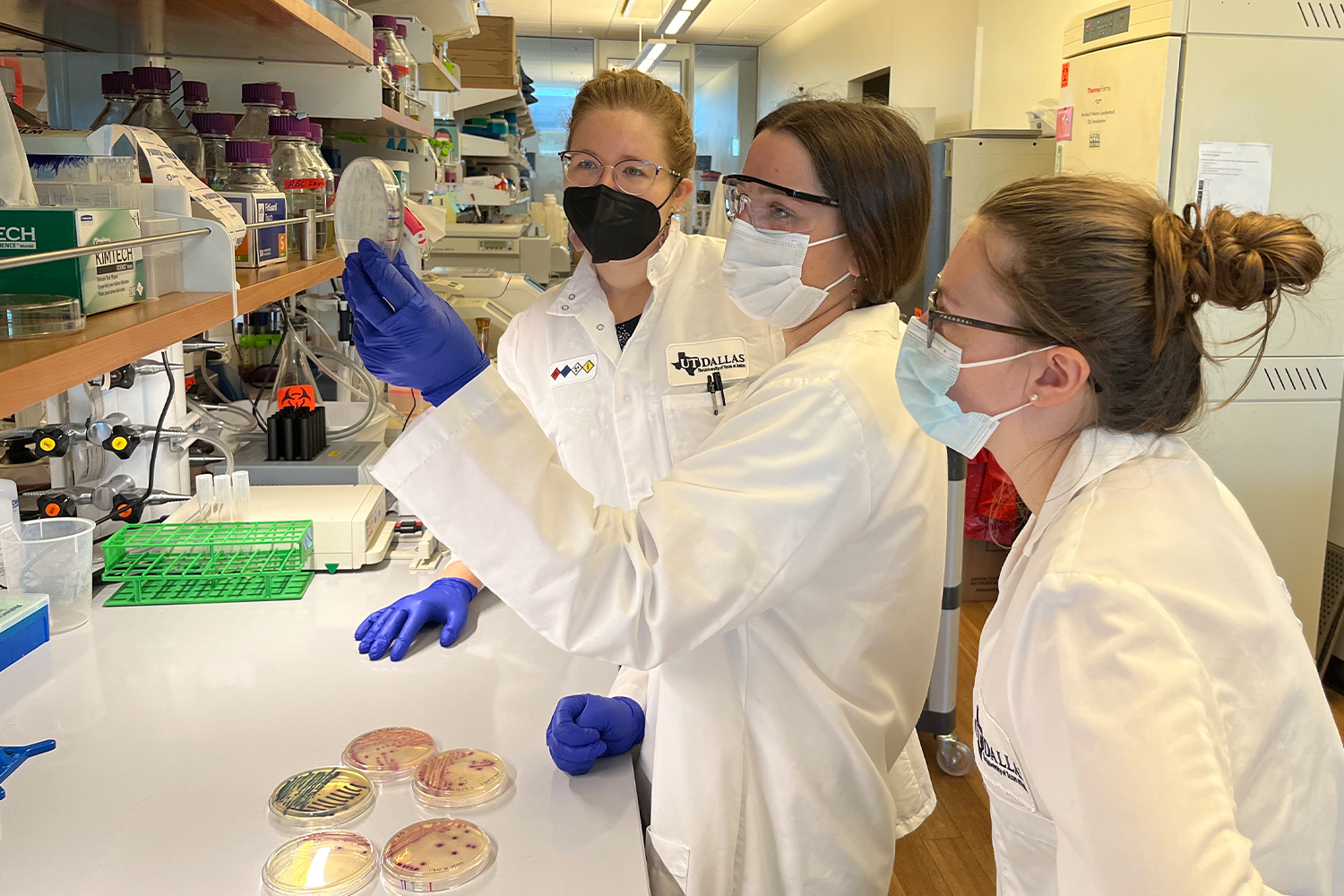
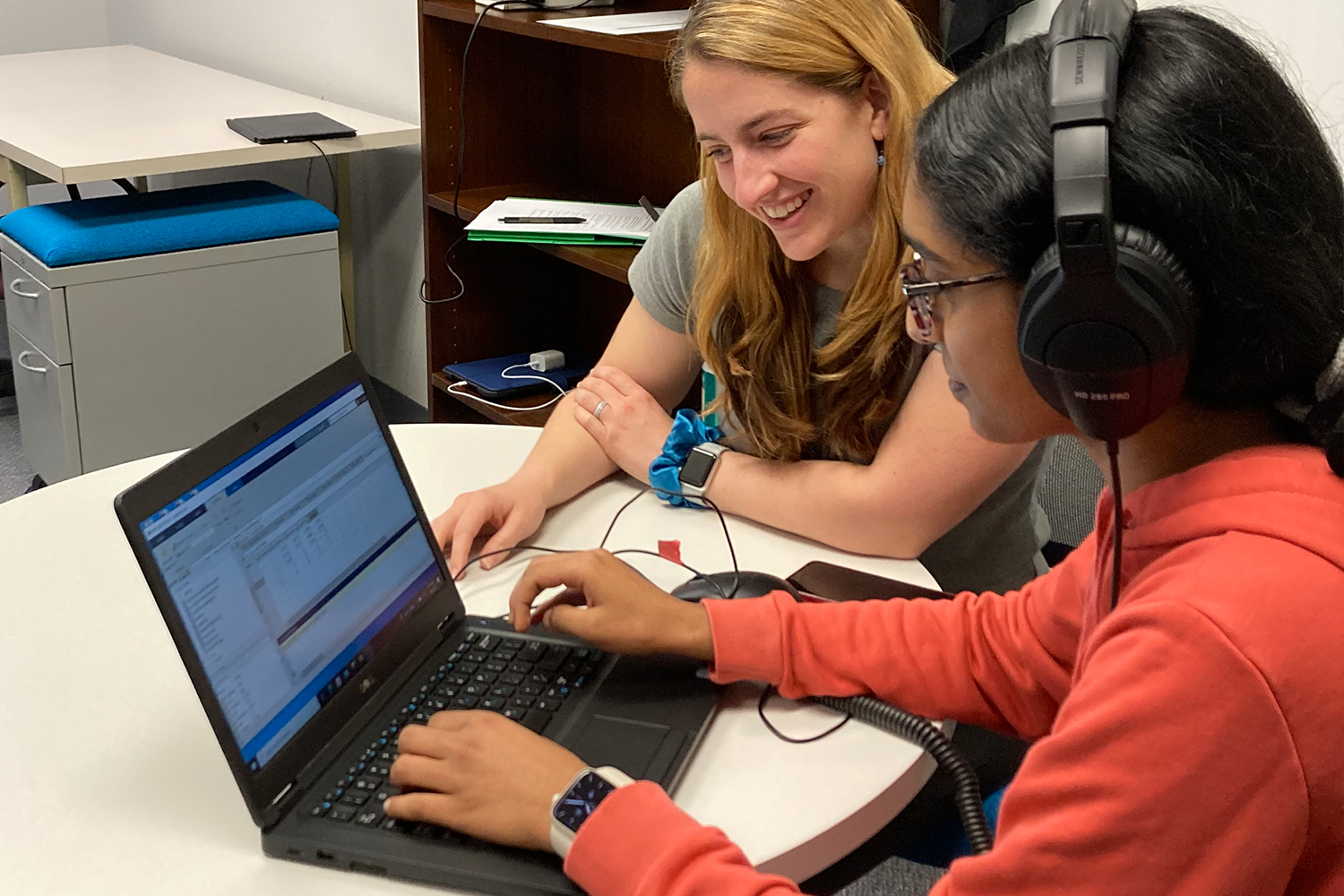

















































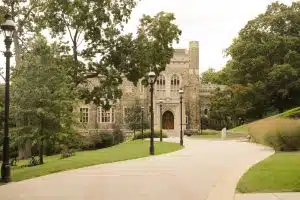


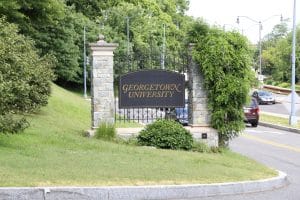
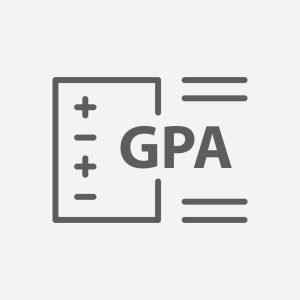




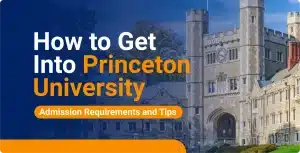


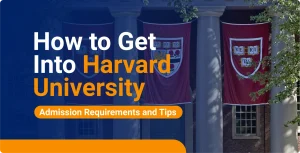

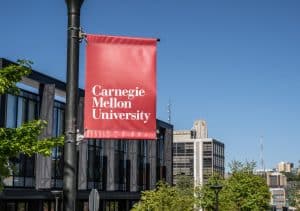


















IMAGES
VIDEO
COMMENTS
Summary. This summer program is designed for high school students interested in engineering and college readiness. It offers a rigorous STEM curriculum that emphasizes hands-on learning, problem-solving, and the practical application of engineering principles. Through intensive coursework and support from experienced instructors, students will ...
While the program is research-intensive, it also includes weekly seminars, discussions, and field trips. 2. UT Austin's High School Research Academy (HSRA) Subject areas: STEM. Location: University of Texas, Austin (Austin, TX) Fee / stipend: Fee- $3,500 per student (+ $5 Application Fee).
The summer High School Research Academy (HSRA) provides high school students with an immersive and hands-on five-week interdisciplinary non-residential summer research experience at the University of Texas at Austin campus.. Students participate in research projects in active College of Natural Sciences (CNS) laboratories related to the exciting fields of biochemistry, biology, environmental ...
These research opportunities are ONLY for passionate & highly motivated advanced level high school students (ideally students finishing 10th and 11th grade) who are thrilled to dig deep and gain more knowledge with minimal guidance.
These programs can also boost your profile for college applications by showing that you can work with advanced material and are passionate about your chosen field. Here's our curated list of 10 STEM summer research programs for high school students in Texas! 1. Texas Tech University's Anson L. Clark Scholars Program.
The program introduces interested and qualified young Texans interested in an Allied Health career to a research environment and provides firsthand experiences in the varied career opportunities available at MD Anderson Cancer Center in Houston, Texas, the nation's leading cancer research and treatment centers.Up to 10 students will be selected to participate in this 10-week program.
The University of Texas High School Research Initiative (HRI) is a scientific inquiry program between nationally recognized programs, UTeach & FRI. The HRI program is focused on training teachers in rural high schools across the entire state of Texas to successfully lead independent research experiences for high school students, infuse inquiry into existing curriculum, and use innovative ...
Here are 20 high school summer programs in Texas that have been recognized for their quality and variety: 1. Houston Museum of Natural Science - Youth Education Programs. Location: Houston, TX. Registration Fee: Varies. Eligibility: High school students interested in science and natural history.
The summer High School Research Academy (HSRA) offers a range of research opportunities spanning many different branches of science, including biochemistry, biology, chemistry, computational chemistry or biology, environmental science, genomics, materials science, molecular biology, and physics. HSRA participants will: be matched to a research ...
The Anson L. Clark Scholar Program is an intensive seven-week summer research program for twelve highly qualified high school juniors and seniors. Program Benefits The Program at Texas Tech University helps the Scholars to have a hands-on practical research experience with outstanding and experienced faculty.
Registration Deadline: 03/26/2023. Camp. The UT High School Research Academy (HSRA) is an immersive experiential-learning program designed to teach high school students hands-on "real" science. Students work directly in faculty labs at UT and participate in faculty-led research projects. Programs for 12th Grade, 11th Grade, 10th Grade.
This eight-week, non-residential program is designed to give teachers and students an opportunity to work side by side with a faculty host in a research laboratory. Participants are paid a stipend and are required to present the results of their research at the end of the summer. Applications are available from December 1 to February 1.
Houston Methodist will begin accepting applications for the 2025 Summer Internship Programs starting on December 2, 2024, and ending on January 31, 2025. The programs will begin on May 27, 2025, and end on August 1, 2025. The internship is held at the main Houston Methodist Hospital campus in the Texas Medical Center.
Summer Resarch Program @ UT Dallas. Location: University of Texas, Dallas. Cost: $500 fee but scholarships are available for low-income students. Application Deadline: Applications for 2024 are closed. Program Dates: June to August (~9 weeks) Eligibility: Open to applicants who have completed 10th and 11th grade.
Summer 2023 Hybrid Research Program for High School Students. June 19 to July 7, 2023. We Are Still Accepting New Applications to Our Summer 2023 Program After the Application Deadline. Please Use the Application Form and Submit It As Soon As Possible. Summer 2023 Program Flyer.
Session 4: July 21 - 26. Location: Rice University. Application Deadline: N/A. Cost: $1,695 for commuters; $3,795 for residents. These week-long summer camps are tailored to teach college-level engineering curriculum to high school students, while also improving their college readiness and building leadership skills.
College Transitions provides a list of the best research opportunities for high school students. Updated for 2022. ... High School Research Programs: Biomedicine : Philadelphia, PA: All Year : No: 11 weeks: Free: Mid-October: ... (Texas Tech University) STEM: Lubbock, TX: Summer Only: Yes: 7 weeks: Free/Stipend: 1/10: 2/10:
Seventeen North Texas high school students recently wrapped up a summer of scientific research at The University of Texas at Dallas involving projects related to cancer, nanotechnology, speech-language processing and disease-sensing devices. ... then in the 10th grade - an opportunity to do original research. -Amanda Siegfried. Tags: BBS ...
Summer Research Opportunities. Texas science teachers and current high school juniors students spend eight weeks working in a research laboratory. ... The camps are designed to provide high school and middle school science teachers with experience and increase their confidence in laboratory exercises, and to give a head-start to students who ...
Cost: $4,000. Important Dates: June 10 - August 10; Application Deadline: March 31. Eligibility: High school students in grades 9 through 12. The Science Internship Program (SIP) at UC Santa Cruz is a prime example of innovative summer research programs for high school students in 2024.
The Anson L. Clark Scholars Program (Lubbock, TX) The Anson L. Clark Scholars program may be one of the most prestigious high school summer programs in the nation. Hosted by the Texas Tech honors program, only 12 high school scholars will be accepted into this program. Students do not merely apply from all over the country, but all over the world.
The STARS Program has grown to serve more than 10,000 teachers and 50,000 students in 3,000 schools in the Dallas-Fort Worth area. STARS includes more than 20 separate programs and projects, which are available - free of charge - to teachers and students in the state of Texas. Summer Undergraduate Research Fellowship Program (SURF)
Three high school students from around the state of Texas spent this summer participating in a high-impact research experience at Texas A&M University through the U.S. Army Educational Outreach Program (AEOP) high school apprenticeship program.. Neha Adusumilli, Sabrina Hu and Richa Kalari had the opportunity to work in the NanoBio Systems Laboratory, which is directed by Dr. Arum Han, Texas ...
Since 2020, Learning Undefeated has operated a mobile STEM lab that travels around Texas to bring hands-on learning opportunities to students. With the one mobile STEM lab, Learning Undefeated ...
The program offers extensive 1-on-1 research opportunities for high school students, across a broad range of subject areas that you can explore as a high schooler. The program pairs high-school students with Ph.D. mentors to work 1-on-1 on an independent research project. At the end of the 12-week program, you'll have developed an independent ...
American Institutes for Research team conducts systematic review of 20 years of research. A new report finds that students who participated in career and technical education (CTE) programs in high school were more likely to be employed after high school than similar classmates who did not participate in CTE.
Texas State's developmental English population grew from 72 students to 1,123 students over the same time, according to the data. Texas Tech University also saw steep inclines.